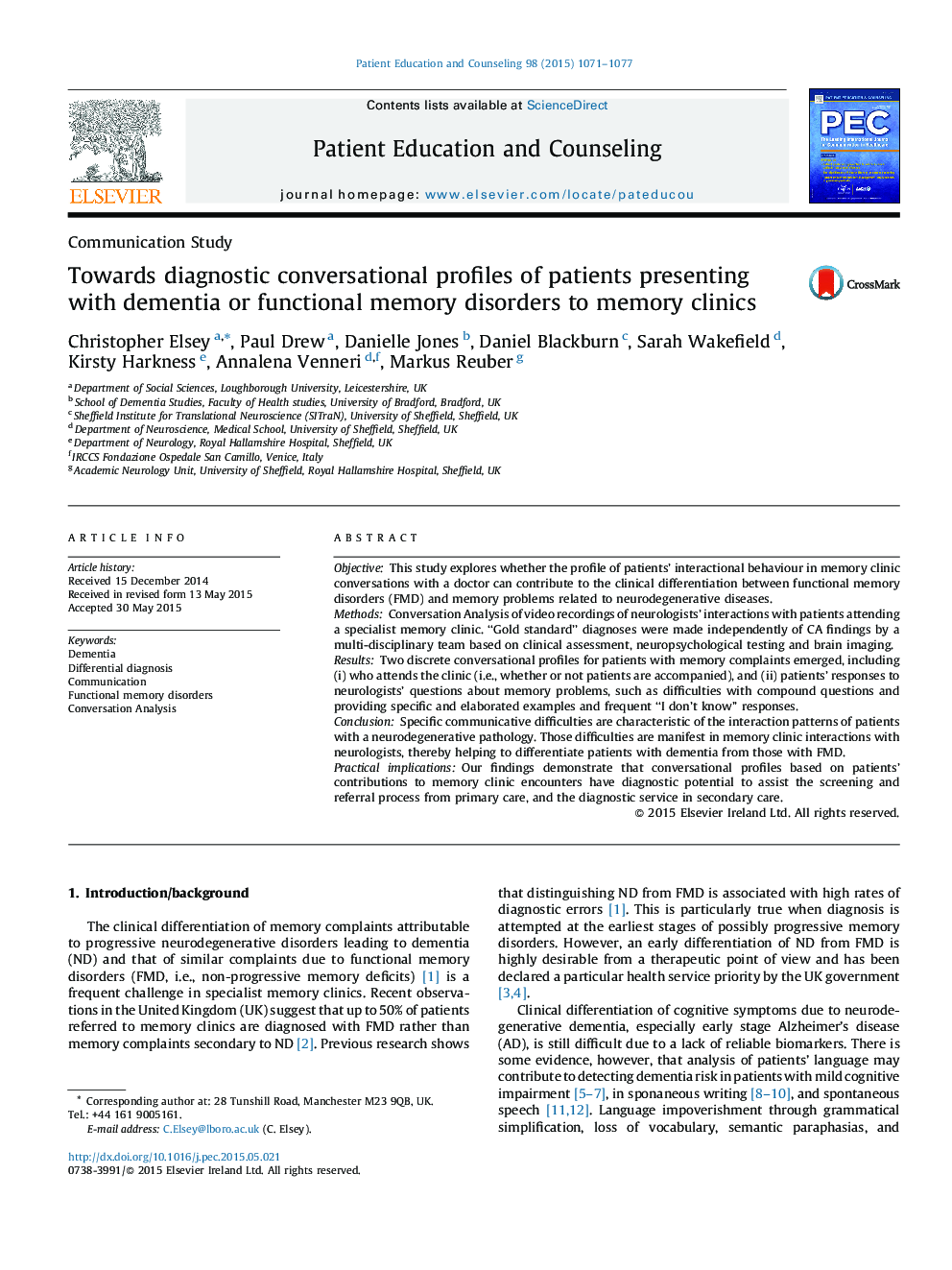| Article ID | Journal | Published Year | Pages | File Type |
|---|---|---|---|---|
| 3813185 | Patient Education and Counseling | 2015 | 7 Pages |
•Differentiates patients with dementia from those with non-organic conditions.•Differential diagnosis based on patients’ conversational patterns.•Non-intrusive diagnostic technique, easy to administer.•Conversational cues can be used to aid the screening and referral process.•Usable by GPs and other healthcare professionals.
ObjectiveThis study explores whether the profile of patients’ interactional behaviour in memory clinic conversations with a doctor can contribute to the clinical differentiation between functional memory disorders (FMD) and memory problems related to neurodegenerative diseases.MethodsConversation Analysis of video recordings of neurologists’ interactions with patients attending a specialist memory clinic. “Gold standard” diagnoses were made independently of CA findings by a multi-disciplinary team based on clinical assessment, neuropsychological testing and brain imaging.ResultsTwo discrete conversational profiles for patients with memory complaints emerged, including (i) who attends the clinic (i.e., whether or not patients are accompanied), and (ii) patients’ responses to neurologists’ questions about memory problems, such as difficulties with compound questions and providing specific and elaborated examples and frequent “I don’t know” responses.ConclusionSpecific communicative difficulties are characteristic of the interaction patterns of patients with a neurodegenerative pathology. Those difficulties are manifest in memory clinic interactions with neurologists, thereby helping to differentiate patients with dementia from those with FMD.Practical implicationsOur findings demonstrate that conversational profiles based on patients’ contributions to memory clinic encounters have diagnostic potential to assist the screening and referral process from primary care, and the diagnostic service in secondary care.
